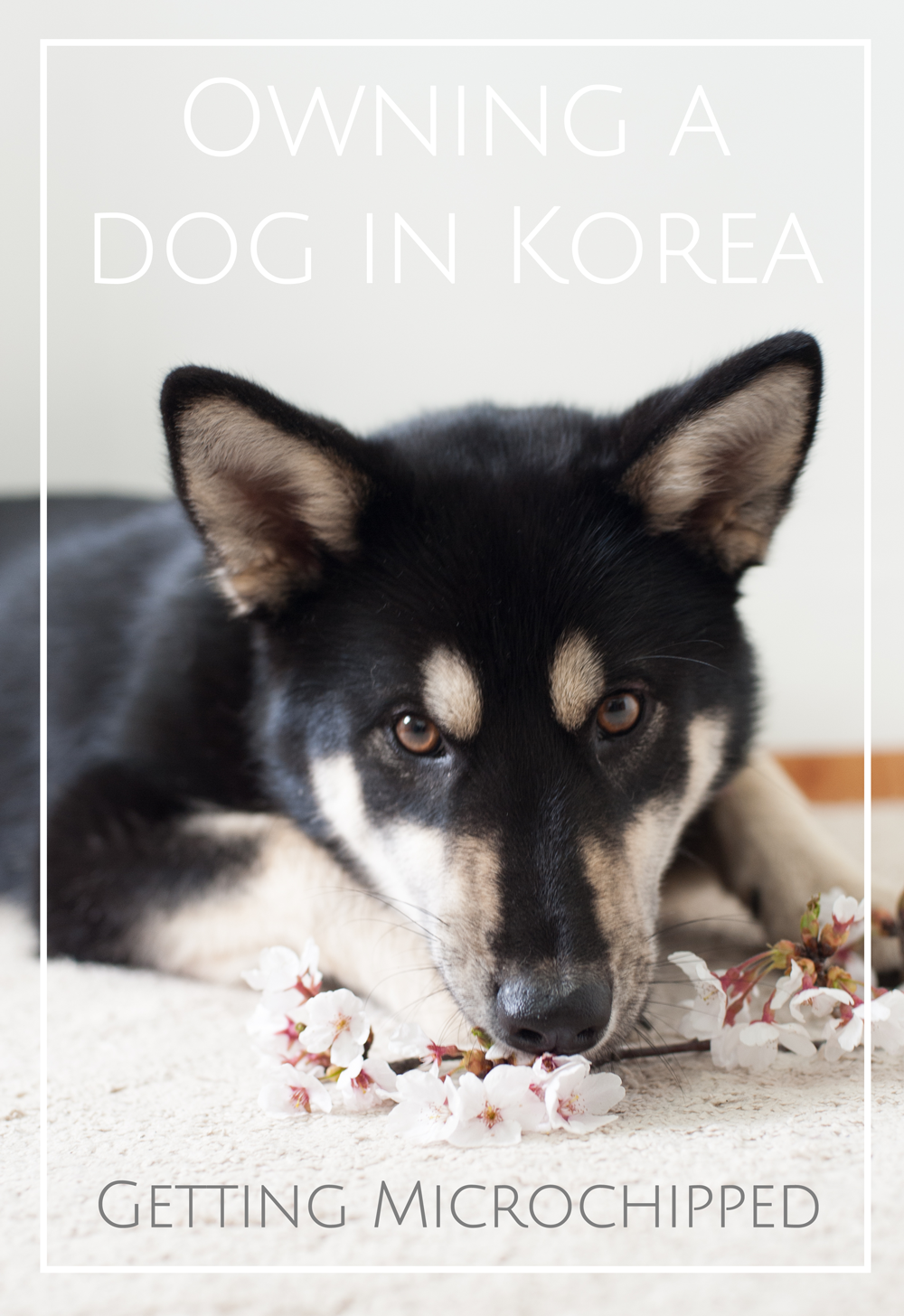Microchipping your dog in Korea
/A microchip is a small device (about the size of a grain of rice) which is implanted in your pets skin. There are no batteries, no tracking technology and no radiation involved. The chip is implanted under the skin between the shoulder blades and contains all your information (phone number, address etc). The needle used is a bit bigger than those used for vaccinations, and so some people prefer to have their pet microchipped while their pet is undergoing another anaesthetic operation (such as neutering) to avoid any unnecessary pain. However, most pets tolerate the procedure with little or no reaction (Shadow included).
Once your pet has a micro chip, your vet will then scan the chip and load your personal info onto a data system, thereby registering you as the owner. South Korea is clamping down on dog owners, imposing heavy fines of up to KRW 1million on unregistered dog. So many pets are abandoned in Korea (after they loose their puppy cuteness or when their irresponsible owners realise how expensive it can be to own a pet) registering the pet allows those owners to be traced.
There are three methods of registering your dog in Korea;
- an embedded RFID chip (Radio Frequency Identification)
- an electronic tag
- or an ordinary dog tag
Microchipping your dog in Korea is a very simple process. The only thing you need to research is what kind of micro chip is used in your home country, or the country you plan on taking your pet to when you leave Korea. Different countries have different chips/scanners, and so depending on where you will be taking your dog when you leave Korea, you need to keep this in mind. As Shadow will be returning with us to South Africa, we needed to make sure his micro chip was an ISO (International Standard Organisation) either ISO 11784 and ISO 11785. South Africa, Canada, Europe & South Korea are countries that I know have 15 digit ISO chip and so getting your pet chipped here will mean they will be able to be scanned in those countries. I have been told by my local vet that I will be able to change my information and address easily when I get back to South Africa as currently Shadow has been registered with my address & phone number here in Korea. In most countries, pet microchips adhere to ISO to promote compatibility between chips and scanners (this refers to the 15 digit ISO chip I mentioned before). In the US, however, there are three different types of chips other than the international standard. Click here for more info on the different chips and scanners.
South Africa (our home country) have a very strict import policy with animals and as such, pets have to be microchipped. For travel to the US, I have read that your dog doesn't have to be chipped (do check with your travel agent to be sure). Also, having your dog chipped and registered here (or any country) just gives you peace of mind, knowing that if they get lost for any reason, they have a much higher chance of being returned to you. A lot of dogs are able to get loose of their collars, and so there is a chance that an electronic tag on a collar could get lost.
All vets will be able to chip your dog. I live in a very small 'rural' town and my vet was able to do it for me quickly and effectively, and all with his very limited English and my even more limited Korean. As I live in a small town, the cost of veterinary services is much cheaper than the bigger cities here in Korea. Micro chipping and registering cost me W25 000 (about $25) but W40 000 ($40) seems to be the going rate in bigger cities. The actual procedure was very quick. It just involves a needle and the chip is implanted into the base of the neck, just below the skin. The needle was large though, that was a bit scary, but it was over in a few seconds and Shadow didn't even notice anything afterwards. Afterwards I was given a certificate as well as a few copies of his 15 digit chip number. It was so easy to do and I can't urge pet owners, especially those here in Korea, to get one done for your pet. I have also heard of people who have ordered their own chip from the US and then simply asked their vet to insert it for them. You are then able to configure the chip to your home address in the US. That option might appeal to you if you are leaving the country soon and know where you are going to be living when you get back home. As we will still be in Korea for at least another year I need to have my Korean address and phone number set up on my dogs chip.
Have you had any experience microchipping your pet? Please leave me a comment below, I'd love to hear from you!

































































































